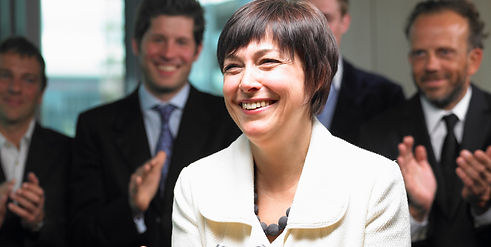
A Culture of Healing &
Empowering Employee Relationships
At Grady, we are dedicated to fostering a culture of compassion, respect, and continuous growth. Our commitment to the well-being of our employees, the excellence of our care, and the empowerment of our community drives our ongoing cultural transformation. Together, we embrace change as an opportunity for positive impact and tirelessly strive for a brighter, more compassionate future.
We invite all our valued employees to take a moment and review the programs on this page.
"Relationship-Based Care® (RBC) is a culture transformation care model and operational framework for improving employee engagement and retention, patient experience, quality, safety, and financial performance. Relationship-Based Care advances the culture of health care organizations by focusing on three key relationships: relationship with self, with colleagues, and with patients/families. Structures, processes, and relationships are designed to support every team member’s ability to provide attuned, compassionate, high-quality care.
In a Relationship-Based Care organization employees feel empowered and trusted (because they are) and therefore are engaged and satisfied. The Relationship-Based Care model and supporting programs for implementation integrate eight dimensions that support high quality clinical caregiving. These eight dimensions are Healing Culture, Patient and Family (in the center of care), Leadership, Teamwork, Interprofessional Practice, Care Delivery, System Design, and Evidence."


"Re-Igniting the Spirit of Caring is a mindset that focuses on reconnecting healthcare staff with their purpose and expanding their capacity to care. It also addresses components of moral distress and burnout.
Participants in the Re-Igniting the Spirit of Caring program are more likely to enhance their compassion, self-care, and interpersonal skills in their job. The program creates a safe place for health care professionals to reflect on themselves, what they uniquely bring to their work, what they share in common with their team members, and how to most effectively serve patients and families."
"Leading an empowered organization “LEO” is where future leaders are developed and current leaders challenge and hone their leadership skills."
"Leading an Empowered Organization unifies your organization’s leaders with a common lexicon for clarity around who is responsible, who has authority, and who is ultimately accountable in any given situation. The formula to identify and facilitate greater personal ownership and alignment among teams is R+A+A."


"The 2-day workshop, See Me as a Person: Four Practices to Improve Quality, Safety and the Patient Experience helps your health care team more consistently create therapeutic connections with patients and their families. Participants gain the personal awareness, professional knowledge, and practical and repeatable skills required to see each patient as a person with his or her own unique story and response to the need for care. An electronic relational competency assessment tool developed, in partnership with data management company OnSomble, can help organizations measure progress and assess where further development is needed."
"... the most effective leader, who creates a culture of excellence, trust, and caring, you must lead in service to others and take good care of yourself. In short, It Starts with You, but It’s Not About You! Three nurse leaders with years of experience from the bedside to the executive suite share a new model of leadership which captures the essence and complexity of healthcare ̶ Human-Centered Leadership in Healthcare. This evidence-based approach requires the leader to practice self-care and mindfulness and to adopt the outward focused leadership attributes of the Awakener, the Connector, and the Upholder. Our mission is to make a difference in healthcare by developing the people who lead the people who care for the people!"


An HRO is an organization that succeeds in avoiding catastrophes in an environment where normal accidents can be expected due to risk factors and complexity. Air traffic control, airlines, and nuclear power plants are some examples of HROs. Within an HRO culture, everyone is acutely aware that even small failures in safety protocols or processes can lead to catastrophic outcomes. Creating an environment supporting an HRO mindset is essential to achieving Grady’s quality and safety goals.
